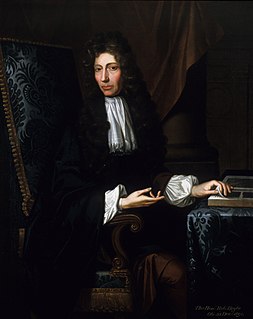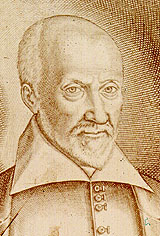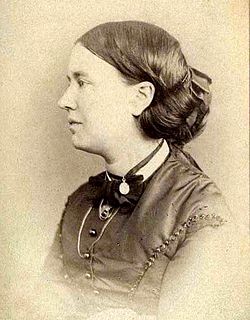A Quote by Robert Boyle
And when with excellent Microscopes I discern in otherwise invisible Objects the Inimitable Subtlety of Nature's Curious Workmanship; And when, in a word, by the help of Anatomicall Knives, and the light of Chymicall Furnaces, I study the Book of Nature, and consult the Glosses of Aristotle, Epicurus, Paracelsus, Harvey, Helmont, and other learn'd Expositors of that instructive Volumne; I find my self oftentimes reduc'd to exclaim with the Psalmist, How manifold are thy works, O Lord? In wisdom hast thou made them all.
Related Quotes
The most excellent and divine counsel, the best and most profitable advertisement of all others, but the least practised, is to study and learn how to know ourselves. This is the foundation of wisdom and the highway to whatever is good. . . . God, Nature, the wise, the world, preach man, exhort him both by word and deed to the study of himself.
Here must thou be, O man, Strength to thyself - no helper hast thou here - Here keepest thou thy individual state: No other can divide with thee this work, No secondary hand can intervene To fashion this ability. 'Tis thine, The prime and vital principle is thine In the recesses of thy nature, far From any reach of outward fellowship, Else 'tis not thine at all.
Late have I loved Thee, O Lord; and behold, Thou wast within and I without, and there I sought Thee. Thou was with me when I was not with Thee. Thou didst call, and cry, and burst my deafness. Thou didst gleam, and glow, and dispell my blindness. Thou didst touch me, and I burned for Thy peace. For Thyself Thou hast made us, and restless our hearts until in Thee they find their ease. Late have I loved Thee, Thou Beauty ever old and ever new. Thou hast burst my bonds asunder; unto Thee will I offer up an offering of praise.
Think not so much of what thou hast not as of what thou hast: but of the things which thou hast, select the best, and then reflect how eagerly they would have been sought, if thou hadst them not. At the same time, however, take care that thou dost not, through being so pleased with them, accustom thyself to overvalue them, so as to be disturbed if ever thou shouldst not have them.
This having learnt, thou hast attained the sum Of wisdom; hope no higher, though all the stars Thou knew'st by name, and all th'ethereal powers, All secrets of the deep, all nature's works, Or works of God in heav'n, air, earth, or sea, And all the riches of this world enjoy'dst, And all the rule, one empire; onlyadd Deeds to thy knowledge answerable, add faith, Add virtue, patience, temperance, add love, By name to come called charity, the soul Of all the rest: then wilt thou not be loath To leave this Paradise, but shalt possess A paradise within thee, happier far.
What is thy thought? There is no miracle?
There is a great one, which thou hast not read,
And never shalt escape. Thyself, O man,
Thou art the miracle. Ay, thou thyself,
Being in the world and of the world, thyself,
Hast breathed in breath from Him that made the world.
Thou art thy Father's copy of Himself,--
Thou art thy Father's miracle.









































